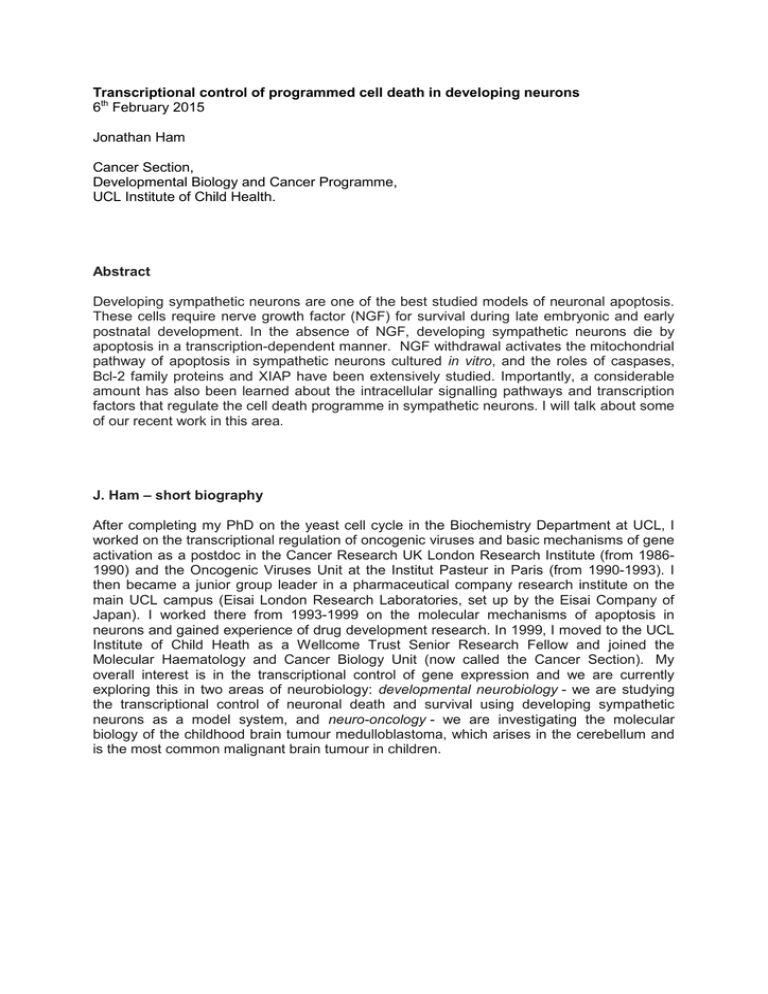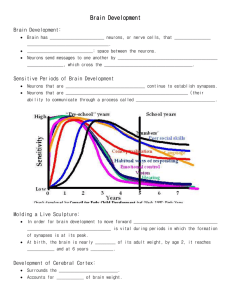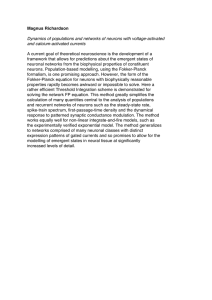Transcriptional control of programmed cell death in developing neurons 6 February 2015
advertisement

Transcriptional control of programmed cell death in developing neurons 6th February 2015 Jonathan Ham Cancer Section, Developmental Biology and Cancer Programme, UCL Institute of Child Health. Abstract Developing sympathetic neurons are one of the best studied models of neuronal apoptosis. These cells require nerve growth factor (NGF) for survival during late embryonic and early postnatal development. In the absence of NGF, developing sympathetic neurons die by apoptosis in a transcription-dependent manner. NGF withdrawal activates the mitochondrial pathway of apoptosis in sympathetic neurons cultured in vitro, and the roles of caspases, Bcl-2 family proteins and XIAP have been extensively studied. Importantly, a considerable amount has also been learned about the intracellular signalling pathways and transcription factors that regulate the cell death programme in sympathetic neurons. I will talk about some of our recent work in this area. J. Ham – short biography After completing my PhD on the yeast cell cycle in the Biochemistry Department at UCL, I worked on the transcriptional regulation of oncogenic viruses and basic mechanisms of gene activation as a postdoc in the Cancer Research UK London Research Institute (from 19861990) and the Oncogenic Viruses Unit at the Institut Pasteur in Paris (from 1990-1993). I then became a junior group leader in a pharmaceutical company research institute on the main UCL campus (Eisai London Research Laboratories, set up by the Eisai Company of Japan). I worked there from 1993-1999 on the molecular mechanisms of apoptosis in neurons and gained experience of drug development research. In 1999, I moved to the UCL Institute of Child Heath as a Wellcome Trust Senior Research Fellow and joined the Molecular Haematology and Cancer Biology Unit (now called the Cancer Section). My overall interest is in the transcriptional control of gene expression and we are currently exploring this in two areas of neurobiology: developmental neurobiology - we are studying the transcriptional control of neuronal death and survival using developing sympathetic neurons as a model system, and neuro-oncology - we are investigating the molecular biology of the childhood brain tumour medulloblastoma, which arises in the cerebellum and is the most common malignant brain tumour in children.





